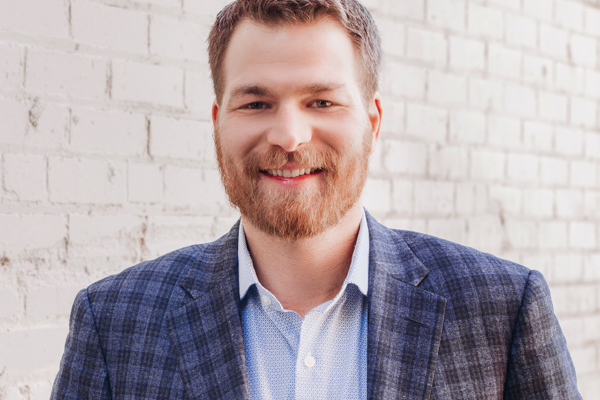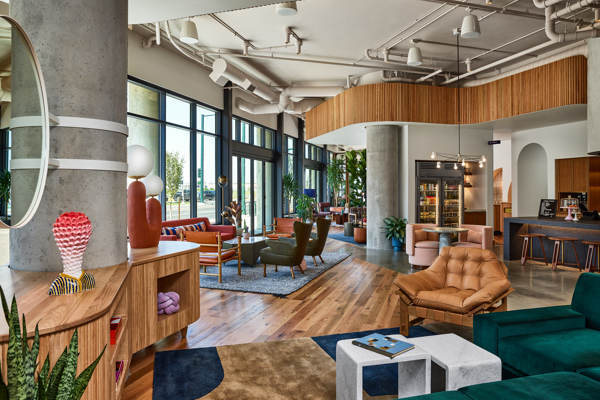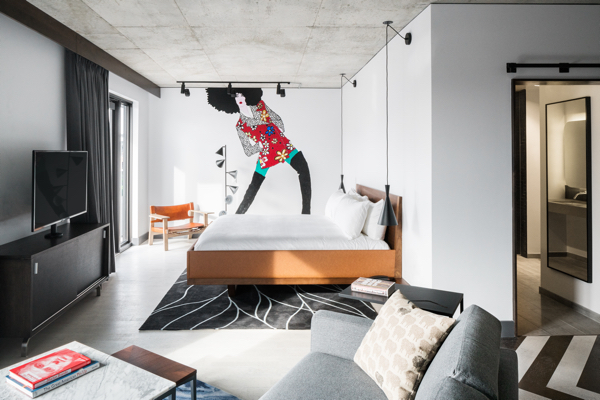With hospitality increasingly becoming a crucial component and amenity across multiple asset classes, Sage Hospitality Group sees a tremendous growth opportunity to provide its services, creative expertise and investment dollars to a wider mix of projects. Senior Vice President of Acquisitions and Business Development at Sage Investments Dean Stambules said the group is recognizing and realizing opportunities in more mixed-use developments, often focused on aligning strategies between hotel, office and residential components.
In fact, of the five active projects in its pipeline in August, four were mixed-use with Denver-based Sage investing with partners across the entire set of assets to better leverage each other’s knowledge bases. “We think that alignment really allows us to create a better product at the end of the day,” Stambules explained. “Mixed-use can still feel very segmented and rolling it up into one P&L, making holistic decisions about the whole project makes a lot of sense and creates a lot of economic moats around our investments and development projects. It’s been an area of significant growth for us.”

Stambules pointed to Sage’s Denver Union Station mixed-use project that includes a Sage-run hotel and F&B concepts that continually deliver revenue across the various asset classes. Its success led to the Dairy Block development, also in Denver, with a similar modus operandi. It has also developed McGregor Square in Denver, which includes an independent hotel, condos, office space and two levels of retail; and a forthcoming development in Salt Lake City will transform a former hotel space into hundreds of micro-apartments.
Dairy Block is an urban complex that is home to an array of bars, restaurants and upscale shops as well as an office space and a Maven hotel by Sage. There are no walls between the office, the food hall and the Maven hotel lobby there, creating more of a free-flowing experience, which Stambules said creates a better environment that generates repeat business across the platform.
“At Dairy block, we have 350 activations a year, and that can be as simple as getting a local musician to play in the alley for a few hours or yoga classes,” Stambules said. “But it’s something for the community and gets the word out.”

Stambules added that Sage is well prepared to take advantage of many mixed-use platform trends that were already emerging and have accelerated as a result of the pandemic. “Thinking creatively and about where hospitality can operate next is an opportunity that excites me the most,” he said.
Independent streak
Even in the more traditional hotel development sense, Sage is looking to deploy capital in the urban lifestyle segment and is gearing up for the next wave of opportunity, which Stambules expects to open up in about six months when more owners may decide to cash out versus reinvest in their assets, especially considering the increasing cost of capital. “We’ll be playing on the investment side more and more in the independent space where we can leverage our IP and creativity,” Stambules said.
Sage is still shifting from just 17 independent, soft-branded, luxury or lifestyle concepts in largely suburban areas in 2017, to today’s 43 lifestyle hotels in major urban areas such as The Crawford Hotel at Denver’s Union Station; The Blackstone in Chicago; the AC Hotel in downtown Portland, Oregon, and more.
Sage remains a net buyer with about 12 total deals in the pipeline in mid-August, according to Stambules. They include a mix of acquisition and transition opportunities, as well as a handful of development deals. In most cases, Sage is taking a minority equity position. “The majority of those pipeline deals on the acquisition side are really transitions and third-party management opportunities – a lot with publicly traded companies that are making strategic decisions across their portfolio or might be acquiring with a lower cost of capital,” Stambules added.
Sage has already completed one investment deal this year in downtown Los Angeles, partnering with HN Capital Partners to convert the former Nomad Hotel to a lifestyle property called Hotel Per La. Sage came in with some fresh capital and rebranded the property with more of a community focus through its Sage Studio branding team and by using Sage Restaurants to create a new F&B concept.

Moving forward, Stambules said Sage will continue to look for urban lifestyle projects, especially as they start to see some pullback in the drive-to resort markets. He does see growth opportunities in those markets in the Southeast or the West Coast in places like Savannah, Georgia, or Napa Valley, California, but again more urban and not necessarily destinations with beach and sand. “We think drive-to is going to pull back and there’s going to be this natural shift back [to urban destinations],” he said. “We’re long-term believers in urban. While office might still have question marks, frankly, I think the rise of leisure, the change in length of stay patterns, and this rise of meeting and local events will backfill in different ways.”
He pointed to Chicago as having been very strong over the summer of 2022 at its properties like the Blackstone and Ritz-Carlton – big assets with more than 300 rooms. “We’re seeing corporate start to return… Even with talk of a recession, hospitality feels like it might be a little bit insulated from some of those bigger macro headwinds.” Stambules said.
Nonetheless, for some owners refinancing is no longer a great option and should lead to more transactions. “There were pretty high valuations and numbers that, frankly, in these drive-to leisure markets we were questioning and did not deploy that much capital early on,” Stambules said. “We believe that the best buying opportunities are on the horizon and will come later this year and early next year and all the way through 2023… We’re really gearing up for that buying opportunity.”
In no case is Sage the majority capital partner in a deal, but the company with its roots in operations will act as a minority, general partner investor, raising capital on a deal-by-deal basis through high-net-worth individuals and friends and family networks. “We delineate investments into two buckets – value-add opportunities, which sometimes we’re partnering with the big institutional, private equity folks and help create value through operations and our F&B expertise, and we’re very comfortable as just third-party managers. So, flexibility is the name of the game for us.”
In the current environment with higher interest rates, Sage is even more selective about partnerships. “Strong sponsorship is really critical right now. So, working with all relationship lenders is critical,” Stambules said. “Fortunately for us, we’ve never been a high-leverage investor – never more than 65% and in most cases 60% to 55%. So, I believe there’s still availability of debt for that level of leverage with good sponsorship and good economic moats that might be insulated from new supply through some competitive advantages that we can create.”
Underwriting is also very fluid with labor being one of the biggest challenges, Stambules added. “We’re going to see hospitality jobs come back to the space. So, we’re feeling like we can get that participation, but we’re also very sensitive to underwriting pay rates that are above living wage, and that’s probably where there have been the most changes to the numbers.”
The new normal also has Stambules and his team forecasting differently – by segment. “That’s maybe one of the best lessons from COVID. So, we are forecasting leisure, corporate and group in three different buckets and coming up with what we think RevPAR growth will be for each individual market based on those assumptions, versus just one master forecast.”
Being in charge of growth, both on acquisitions and on the investment side, as well as the third-party puts front of mind the capital market environment, the choppiness and pressure on labor, and getting people back into Sage. “It’s a little bit of a wait-and-see environment on the acquisition front until interest rates settle,” Stambules said. “There’s a little bit more clarity now than even maybe a few weeks ago, or months ago into what interest rates will look like over the next 12 to 24 months.”
Brand business
While more than 80% of Sage’s portfolio is branded in one sense or another, it is moving toward independent concepts and continues to develop its own in locally infused Maven and the extended-stay/micro-apartment concept recently introduced in Denver called Catbird.

Sage’s Maven concept (very local, lifestyle 4-star) could be scaled, said Stambules, as somewhat of a collection brand. “If we were to take it to Nashville, Tennessee, or Austin, Texas, for example, we’d want to make sure that it is rooted in that culture… We see that as an opportunity for growth over the long term.”
The group also wants to expand Catbird, a micro-extended-stay hybrid model that checks all the boxes in that it is 390 square feet with a full kitchenette. Sage doesn’t have additional Catbird projects executed yet but is eyeing CVB-adjacent markets and local, cool neighborhoods that may be traditional hotel gateway markets, according to Stambules.
“We think these hybrids are here to stay… We see the opportunities to leverage the branding and creativity to lead with hospitality because, from our lens, it feels very multi-family and when you go to other concepts there’s no communal space, no activations,” Stambules said. “At Catbird, we have no traditional front desk – it’s a big kitchen counter with a chef behind it every morning… We think hospitality is going to bleed through all other asset classes – you even see it with the office trades. It’s the haves and the have nots with these projects. So, how can we leverage being in the service and branding businesses into these other spaces? I think that’s a tremendous opportunity… It is very attractive for families or younger demographics that might be doing bigger, smaller group vacations.”
F&B, clubs
Sage also spends a lot of time developing and delivering culinary concepts that go a long way to drive the bottom line and generate trial.
Stambules pointed to two Sage Restaurant concepts – Hello Betty and Urban Farmer – which have legs for growth. The second Hello Betty recently opened at The Canopy in Bethesda, Maryland, and Urban Farmer is expanding to as many as four locations. Sage believes it can grow these concepts independent of hotel spaces, as well.
“We’re not as focused on just growing that IP as we are about partnering and leveraging our restaurant team’s expertise and food knowledge to find those locals that we could go bring in that helped create that community, local press and following that has become so critical to the success of lifestyle and luxury hotels,” Stambules said. “We focus on what might be missing in the area or what might fit based on industries that are there and provide something that is elevated and feels really authentic to whatever that local community might be.”
Sage has a number of chef-driven restaurant management agreements right now, working with the likes of well-known chefs such as Michael Mina and Richard Sandoval through licensed partnerships.
Trying to cash in on another emerging trend, Sage is also piloting various membership models.
It has a membership club that it has been managing for about 18 months at the Asbury Park Hotel in New Jersey. Again, it is trying to root the concept in community and offer something unique with activations.
Stambules warned, however, that a club tied to a hotel creates extra layers for operations. “But I also think it enhances the total value of the asset,” he said. “For somebody who maybe can’t afford the Hamptons, it is a relatively attractive price point with still great beaches and a 45-minute commute from Manhattan.”

